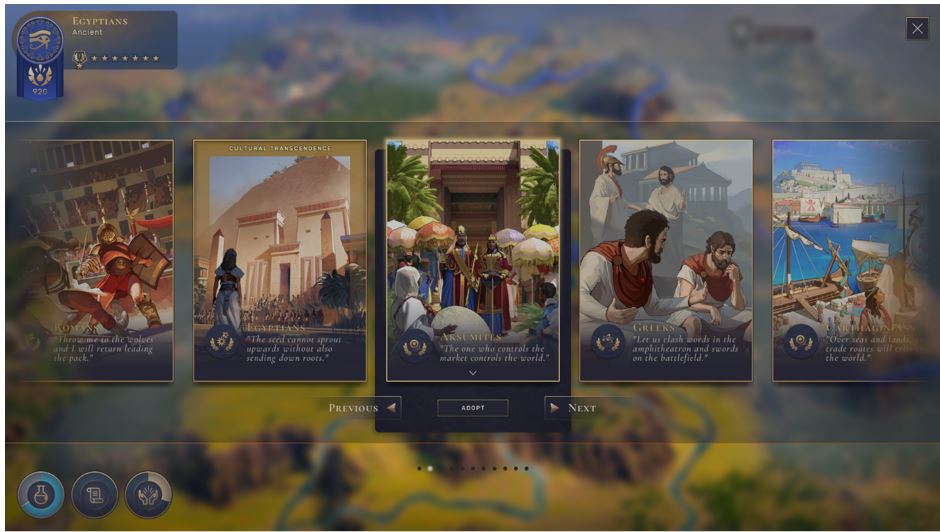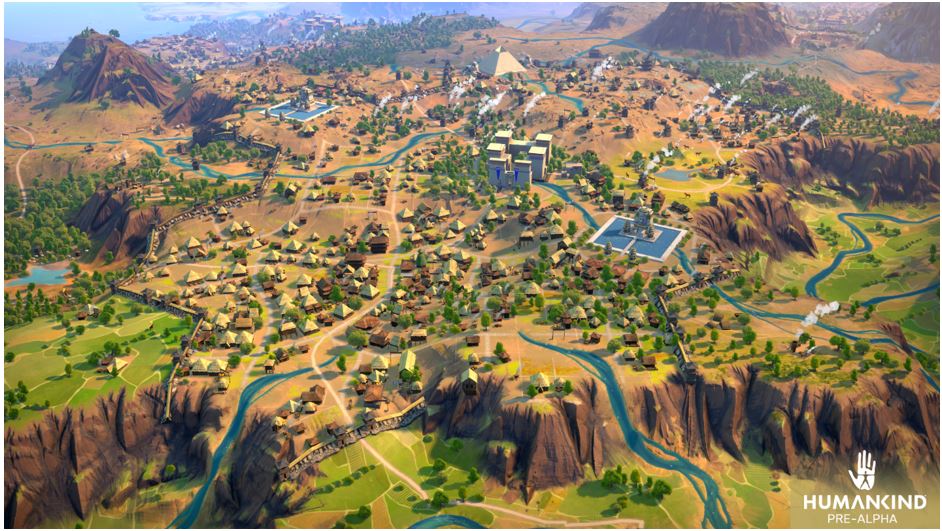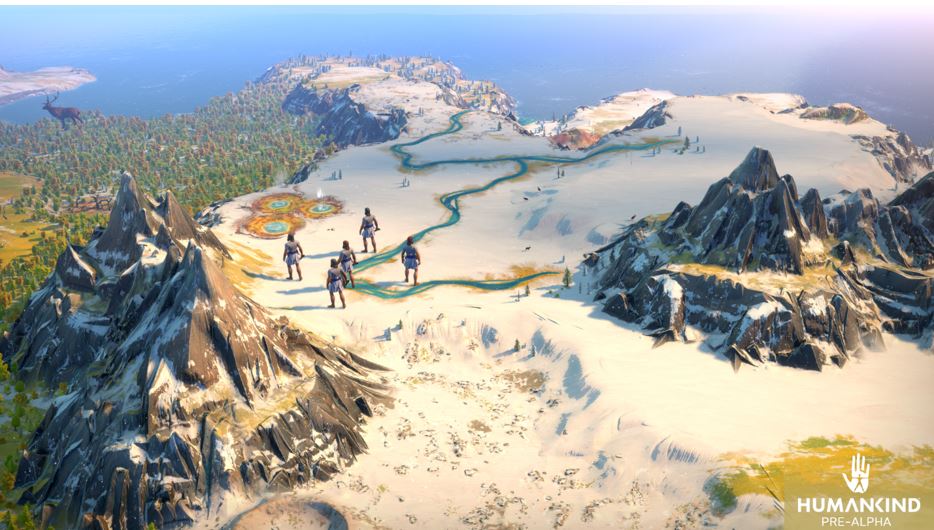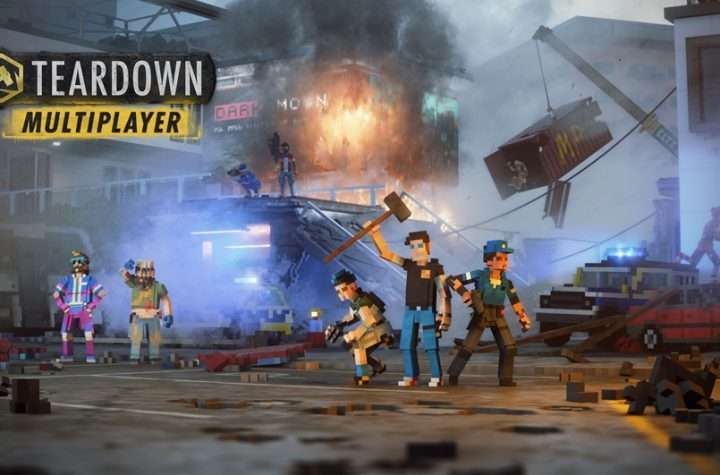
One of the very first video games I played as kid was introduced to me by my best friend back in middle school; it was a civilization game set in Ancient Greece that allowed you to create your own city state and trade goods to grow your wealth and reputation. We would play for hours on her laptop, and I remember getting completely engrossed in that imaginary world where I could build and do anything I wanted. So when I got the chance to preview Humankind by Amplitude and Sega, where the whole idea is to form the civilization of your dreams while experiencing the entire history of humankind, I was stoked. Below are my impressions:
First of all, this game is unique because of the vast variety of cultures you get to choose from—there are six “eras” you get to play through, and each era has 10 cultures. For example, in the first era I could pick between famous ancient empires like Babylon or Egypt, and each had their own unique strengths and historical achievements. When I chose Ancient Egypt, the defining trait was obviously architecture, and this affected the structures and technology I could build. I was pleased to discover that the featured cultures did not only focus on Western/Eurocentric Civilization, but also empires of Asia, Africa, and the Middle East. In the end, all of your eras combine, but you can always start again and choose a whole new set of cultures. Because there are 60 different types, there are countless combinations and an endless number of different outcomes. As much as I loved the Ancient Greek game as a kid, I have feeling I would have loved this game a lot more—you can play it over and over again and never get bored!

Another fascinating aspect of the game is that of fame. As you play through each era, you obviously keep track of your population, resources, and economy to maximize industry, money, and science. You can also raise armies and fight in battles. But your ultimate goal is not merely to maintain wealth or even survive for as long as possible. Instead, you are rewarded for new discoveries, progress, and innovations that push the entire civilization of humankind forward. This is where fame comes in—you can either earn Era stars by expanding your territory or growing your population, or you can complete unique Deeds by discovering a natural wonder or a new technology. Even if one of your eras is short-lived and gets crushed early on, it can still be renowned throughout history for a great deed or discovery.

Lastly, the map is gorgeously designed and cleverly walks the fine line between the real and the imaginary. The animal wildlife is beautiful, and the terrain is diverse enough to make you think critically about the best location to settle. Sometimes new aspects of the map are introduced before you are allowed to interact with them, which confused me longer than I would to admit, but this might still be a work in progress since I was playing the beta version. Overall, Humankind is richly detailed and gorgeously constructed, and I know it will inspire many to pursue their innate curiosity and imagination.
Check Out the Humankind Open Dev Announce Trailer:
More information on Humankind is available on the Humankind website as well as on Steam.
As an Amazon Associate we earn from qualifying purchases.
From the moment I first played Lego Star Wars II: The Original Trilogy on the original Xbox, I have always had an avid curiosity and enthusiasm for video games. I admire their ability to immerse us in completely different worlds, and I am always eager to see how they integrate the newest breakthroughs in digital technology to make virtual reality feel real. I am currently a senior at UC Berkeley, but when I'm not studying I always make time to play Xbox One with my younger brother.





More Stories
Bus Simulator 27 Announcement Trailer Features New Famous Brand Solaris Bus & Coach
The TEARDOWN Online Multiplayer Update Heading to Steam March 12
Bungie’s MARATHON Server Slam Starts Tomorrow February 26 – March 2